At the end of the fifth episode of Star Trek: Discovery, Lt. Paul Stamets (Anthony Rapp) and Dr. Hugh Culber (Wilson Cruz) stand side by side at a sink, brushing their teeth in matching red Starfleet pajamas.
It's a quiet scene at the end of an action-packed episode of the new sci-fi drama on CBS: All Access (the network's new streaming service), in which an escape from a Klingon attack turns on an act of heroism from Lt. Stamets. His decision to take the place of a possibly sentient being to power the ship's spore drive not only saves the being, but also every crew member aboard.
Heroism aside, it is the simple toothbrush scene that will be remembered for making Star Trek history. For the first time since the franchise initially aired on television in 1966, fans saw not only how people in the future practice good oral hygiene, but, more importantly, a gay couple being themselves in an intimate moment.
"One tends to worry when they're doomed to love a brilliant but reckless maniac who's willing to risk his life for glory," Dr. Culber tells his partner in the scene. "You may not care about you. But I do."
It's a moment that one of Discovery's gay showrunners, Aaron Harberts, knows well. "I've been with my spouse for over 22 years. But for me, the thing that I love most about our day is when we're brushing our teeth together," he said.
Too often, Harberts has observed gay characters in film and television "sexualized right out of the gate." But with Star Trek: Discovery, Harberts, fellow showrunner Gretchen J. Berg, and his writing team planned a "slow rollout" for the first obviously gay characters in the Star Trek universe.
This storyline aims to be "transcendent" and "a vision of a homosexual relationship that is rarely given" in mainstream media. LGBT people, Harberts declared, finally deserve a love story akin to Patrick Swayze and Demi Moore molding clay together in Ghost. They deserve to be seen as heroes.
In a New York studio last October, Rapp and Cruz, having just wrapped panels at PaleyFest NY and New York Comic Con, went through the rituals of grooming for a photo shoot for The Advocate. Cruz cycled through shirts to bare a superhero's torso -- occasionally giving workout tips to an editor in between shots. Rapp, in a Star Trek T-shirt, conversed with his real-life partner about iPad troubleshooting during pauses. At one point, Rapp checked his social media, and remarked with incredulity that someone had called his character a "douchebag."
"The character's a little edgy and persnickety -- ornery in some ways -- and I'm not really," clarified Rapp, after the actors had finished the shoot and settled down to salads. Indeed, Stamets begins his story arc with a "persnickety" attitude -- Harberts used the same term -- particularly toward the show's antihero, Michael Burnham (Sonequa Martin-Green), who had fallen from good graces after betraying her first captain.
While Stamets might rub some the wrong way, Cruz saw the appeal. "[My character finds] that he's opinionated, or persnickety, or confident in his beliefs incredibly attractive," Cruz says, admitting he "likes that about people as well."
And what does Rapp's character find appealing in Culber, the calm health care administrator who has long attended to Stamets?
"I recognize right away that he could handle my persnicketiness. It was like he let me be myself," Rapp said. "We allow each other to be ourselves, and I like the softer sides. It's a balance thing."
The two 40-something actors themselves experienced a deepening of their friendship since beginning these new roles together. The pair has known each other since Rent -- Rapp originated the role of Mark Cohen on Broadway, and Cruz later joined the cast as Angel Dumott Schunard. Their mutual respect for one another's careers runs deep.

Rapp recounted how stumbling on MTV reruns of My So-Called Life -- in which Cruz made history by being the first out gay actor to play a gay lead in a TV series -- salvaged "a really miserable experience" in 1995 when he was filming Twister in Oklahoma.
"It was a lifesaving experience for me as an actor," Rapp said. After seeing Cruz's portrayal of Rickie Vasquez, he thought, "This is what I want to be. This is the quality that I want to be a part of."
It's a sentiment Cruz has heard and felt before. "That show literally saved my life. So I understand when people say how much it means to them, because it means that much to me," Cruz replied.
Cruz, a former spokesman for the LGBT media group GLAAD, described himself as an "actorvist." Both actors, who have spent most of their long acting careers out of the closet, agree that for them, acting and activism go hand-in-hand. This worldview makes them ideally suited for Star Trek: Discovery, which is breaking barriers for a new generation of LGBT people. "We wanted out gay actors playing these parts," confirmed Harberts, who called this casting another "benchmark" that is "trailblazing a new moment for us in terms of storytelling."
"If we had given ... the arc of this relationship to straight characters, it would be denying our community the chance to elevate gay relationships to something we haven't seen before," Harberts said.
Choosing LGBT actors for LGBT roles is "a change" for Hollywood, Wilson noted drily. And each actor's path to Star Trek: Discovery was not the usual casting process for network television. "Normally, you have to jump through so many hoops," bemoaned Rapp, who was astonished when he received a straightforward offer.
"I didn't know there was a new Star Trek! I had no idea!" said Rapp, recounting his reaction to the fateful email. Soon he was chatting about the part on the phone with Bryan Fuller, the show's original co-creator. Fuller left Star Trek: Discovery to helm American Gods on Starz. But the gay producer's vision of storylines involving complex moral questions amid a stunning spectral backdrop lives on through Harberts and Berg, who have been longtime collaborators in queer-friendly fan-favorite shows like Pushing Daisies and Wonderfalls.
Cruz also worked with this trio on Pushing Daisies and paved his own path to becoming Culber. Early on, he reached out to Fuller through a direct message on Twitter, congratulating him on Discovery and letting him know "that I would be more than happy to be a part of it." After Rapp's casting, Cruz called Harberts and Berg to praise them on an "amazing" choice--and to also convey a similar message.
Cruz's call to the showrunners was unreturned. But eventually, he did receive a message from an excited manager. "You're going to be on Star Trek!" the rep exclaimed.
When Cruz met with the showrunners, Berg greeted him at the door. "I forgot to call you back. This is your returned phone call," she said.

Their participation holds special significance. Since its inception, Star Trek has shown a post-racial universe that embraced diversity. Cruz recalled watching Next Generation in his youth and dreaming of being part of an "ideal" that "we were all working towards."
In life, "I wanted two things. I wanted to be in a Broadway musical. And I wanted to be on Star Trek. And to have that experience with the same person is pretty amazing," Cruz said.
Rapp, "a geeky geek for my whole life," always loved Star Trek -- though he stops short of the "Trekkie" label. But for all its inclusiveness, the show's long-running absence of out LGBT characters has been a "blind spot," said Rapp. Cruz agreed.
"Imagine watching a television show for decades at a time that's supposed to represent the ideal future of what our world will look like centuries from now, and not being included in that. And what does that subliminally say to young people and a whole community? Does that say we've become extinct? It sends your imagination into dark places," Cruz said.
This makes their role in breaking the gay glass ceiling even more important. Cruz, a proud gay man of Puerto Rican ancestry, becomes tearful recalling how a friend reminded him: There are gay and Latino kids that will be him for Halloween, who will go on to be doctors and have "a future that's bigger than they ever could have imagined."
Cruz acknowledges that there is still a lot of work to be done in expanding the universe of acceptance.
"When we talk about LGBT characters on TV we're talking about the entire rainbow, and that includes trans people, and that includes non-binary people, people of color, women, differently-abled people," said Cruz. "There is so much opportunity for storytelling there, and I hope that we continue to see more of that."
Star Trek: Discovery is not the first imagining of this universe to include queer characters. The film Star Trek: Beyond, directed by Justin Lin and produced by J.J. Abrams, reintroduced the character of Hikaru Sulu as gay in a subtle scene in which he embraces his partner. The gay actor who originated Sulu, George Takei, criticized the creative decision regarding Sulu's sexual orientation, saying it went against the wishes of creator Gene Roddenberry as well as his own interpretation of the character.
Reflecting on the controversy, Rapp called Sulu's scene a "nice nod" to Star Trek's universe of queer fans who have long hungered to see themselves reflected. But he also understood Takei's point of view. Cruz added, "Sometimes we make progress in leaps. And sometimes we make them in small steps. And this was progress in a small step."
Takei has put his own stamp of approval on Cruz and Rapp's characters. When they made their debut as a couple, Takei tweeted his thanks to Discovery for "going where no Star Trek show has gone before." For both actors, acknowledgement from Takei "means a lot."
"You want to talk about a person who has used their art and their voice as change for our community? George Takei is on the forefront of that," Cruz said of the 80-year-old actor, Japanese-American internment camp survivor, and social media influencer. (Since the time of this interview, Takei has faced an accusation of alleged sexual misconduct in the #MeToo movement. Takei denies the accusation.)
Both Rapp and Cruz have been voices for change on social media. Cruz shot back at those who say that queer people have no place in Star Trek in a Facebook post. "I'm not here for your comfort," he wrote, in an impassioned call for the importance of visibility. "LGBTQ people aren't going to just disappear because you put your head in the sand. We share the planet with you. We have always been here and we will always be here."

Rapp has also played a major role in the #MeToo movement, after coming forward to say Kevin Spacey attempted a sexual advance on him when he was 14 and Spacey was 26. (Rapp recounted the story to The Advocate in an 2001 interview, but the magazine's editor chose not to name Spacey at the time.)
On Twitter, Rapp stated he is "standing on the shoulders of the many courageous women and men who have been speaking out to shine a light and hopefully make a difference, as they have done for me." Rapp's act inspired dozens of accusers to speak out against Spacey, who has since been removed from House of Cards and the film All the Money in the World.
"It's one thing to be a hero on television. It's quite another to be a hero in one's everyday life," says Harberts. "Anthony Rapp is just such a hero. His courage and unwavering voice have been a force for change. I'm proud to call him a colleague and friend."
Courage is a team trait in the Discovery cast, which itself did a #TakeAKnee selfie in solidarity with those in the NFL demonstrating during the national anthem to highlight police brutality.
"We were very proud to do it," said Rapp, while also acknowledging how the post attracted online trolls.
It's a species Rapp engaged with before. He once responded to a nasty commenter with a note: "Just so you know, I'm a human being. Try to be a little more polite." The troll actually apologized -- both online and later at the stage door of a show in which Rapp was performing. "I thought that was really cool and brave," said Rapp -- although he still won't engage with trolls with "crazy" feeds.
This story illustrates that even in a world that has never seemed so divided, there is hope. It's a lesson that the actors want viewers to take away from Discovery -- now renewed for its second season -- which also shows a universe grappling with war and division.
"It's really a story where you have to go through the darkness to come out back on the other side," said Rapp. "But at its core, it still maintains this hope for a better future, a sense that the best parts of ourselves can bring about peace and harmony."
But this better future "doesn't just happen," said Cruz. "It happens because within the next 200 years, we as a species decide what kind of world we want to live in. Star Trek represents that ideal. And it's up to us to work towards it."

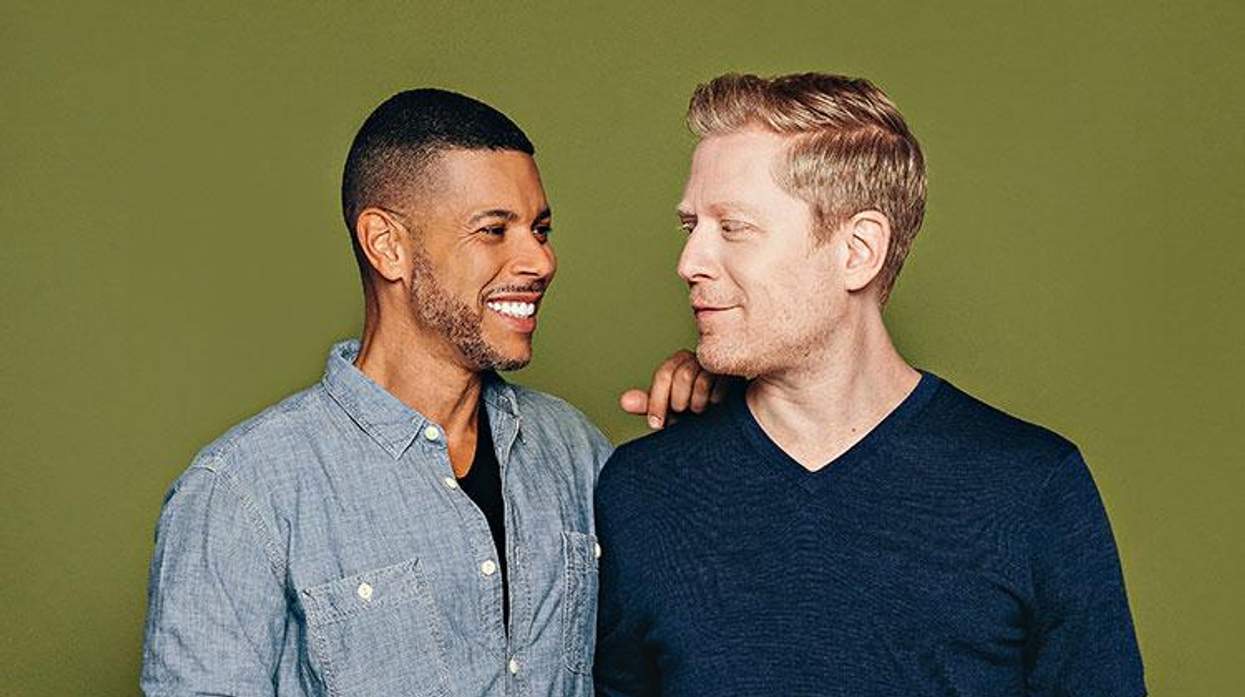

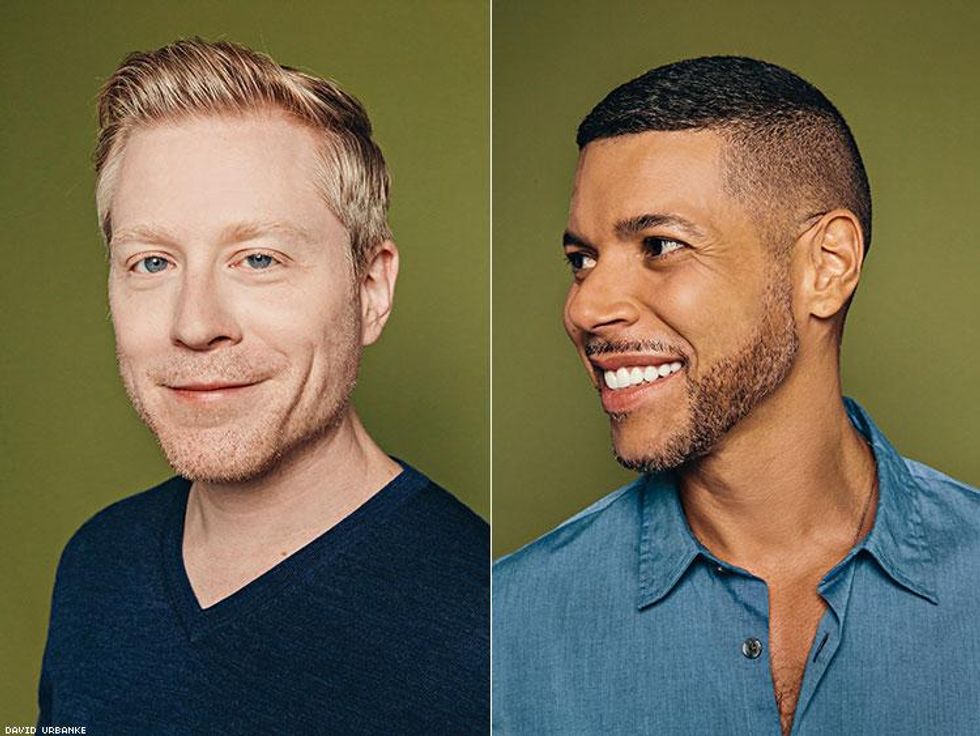
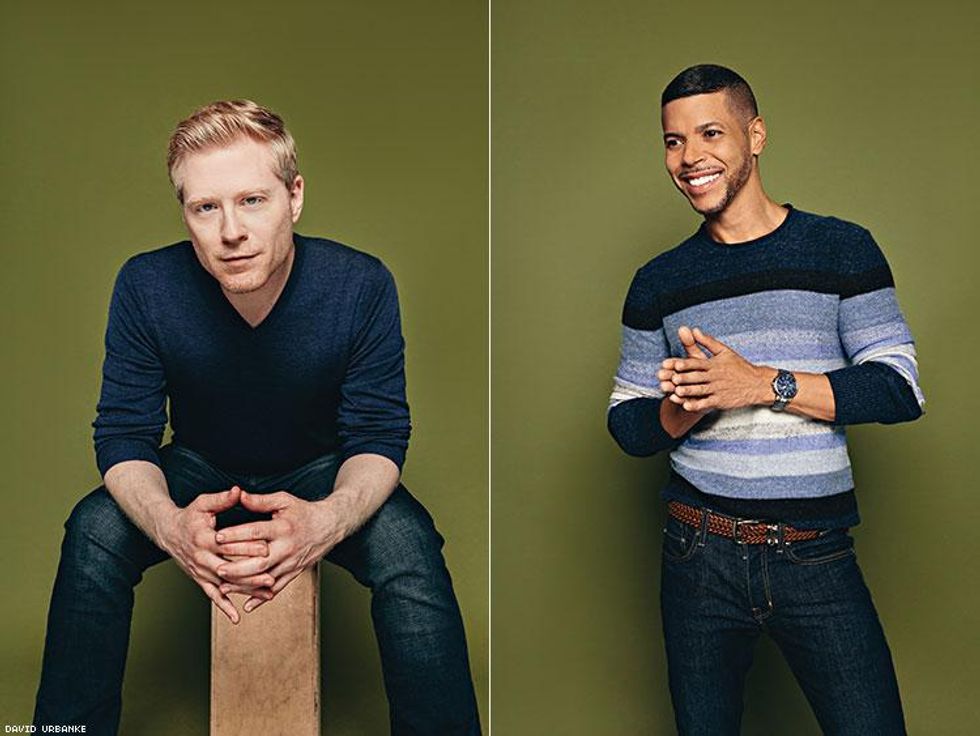
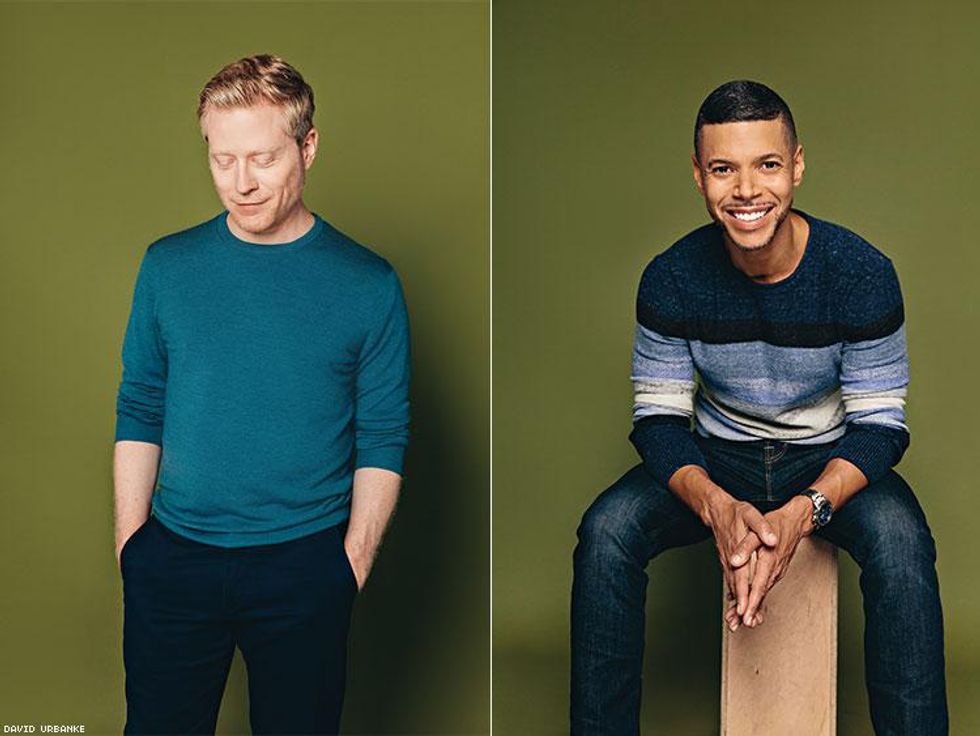
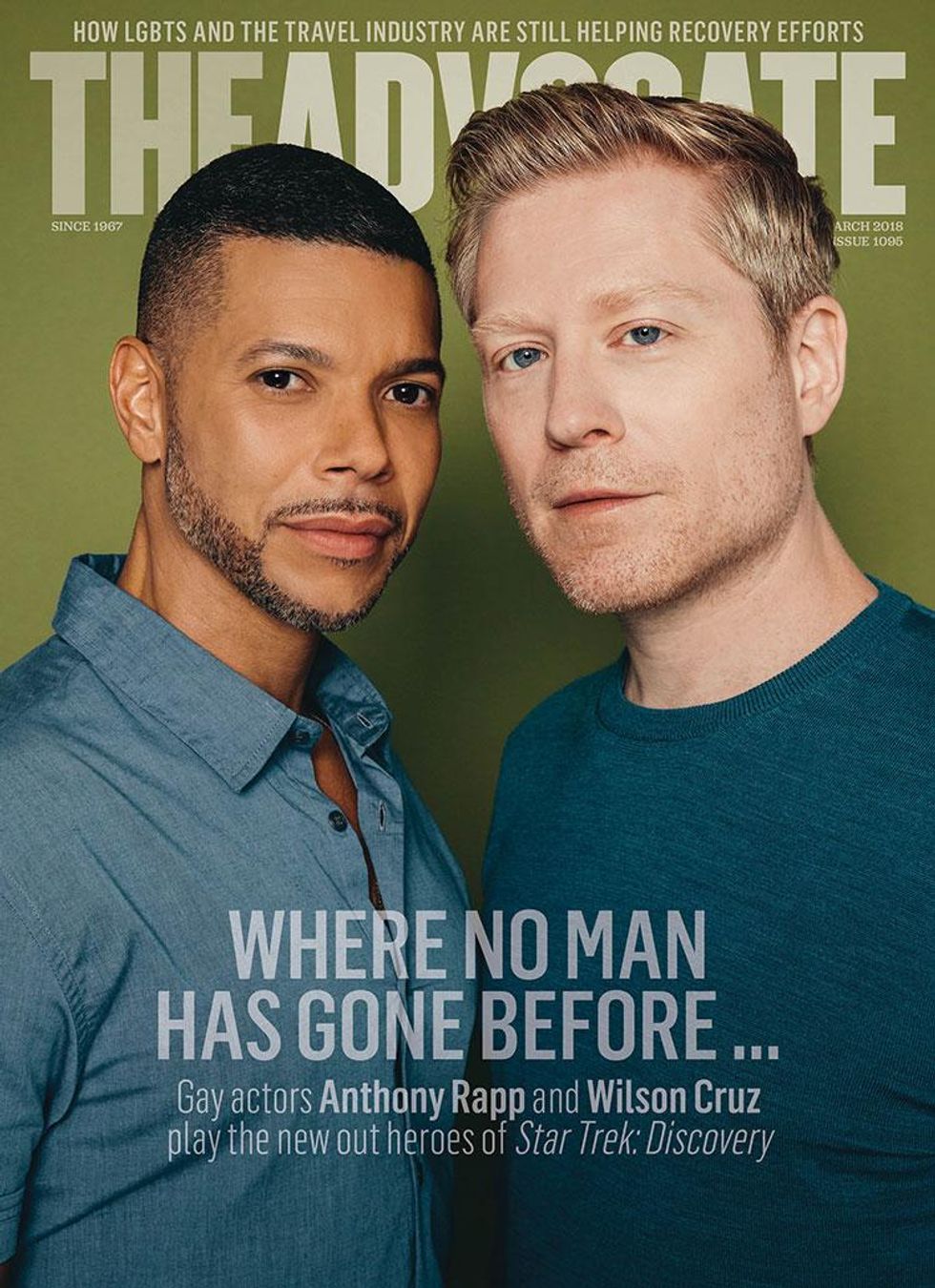


































































Charlie Kirk DID say stoning gay people was the 'perfect law' — and these other heinous quotes